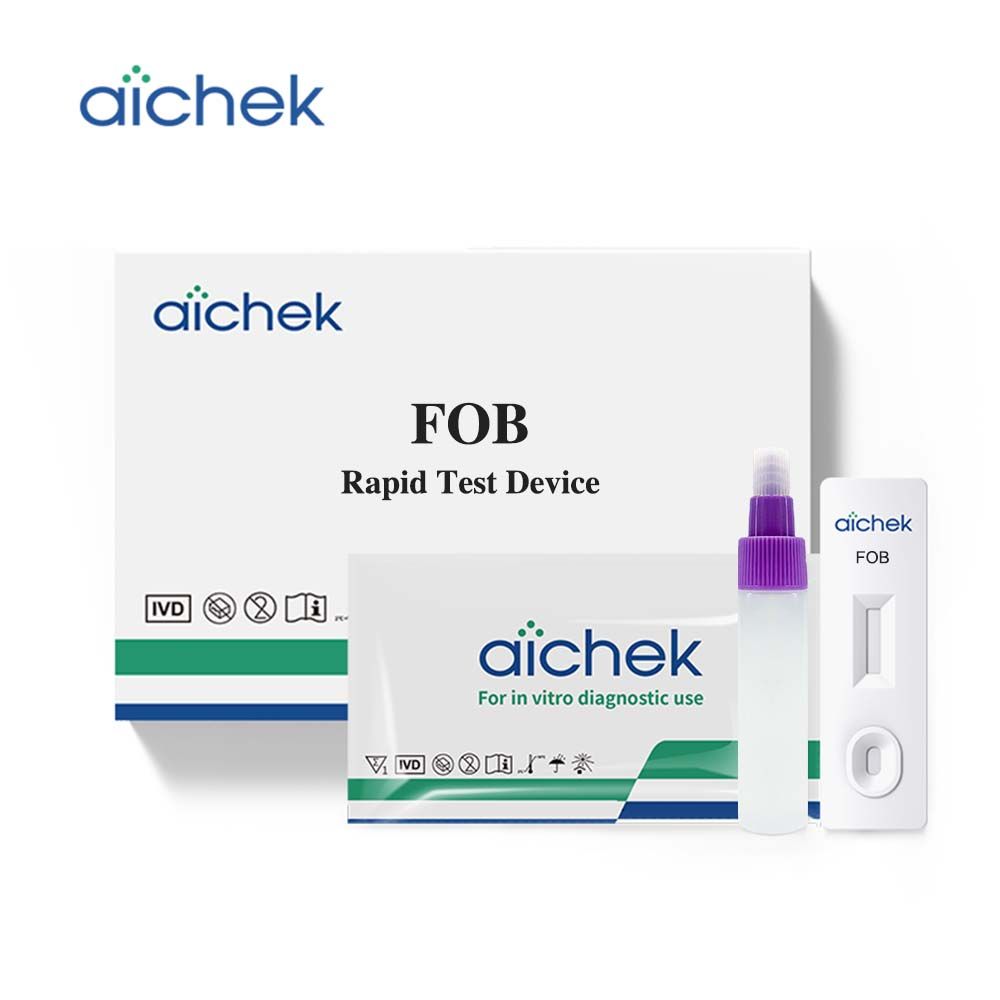Understanding FOB Testing

What is FOB Testing?
FOB testing is a diagnostic method used to detect hidden traces of blood in stool, an early indicator of potential issues in the digestive system, including colorectal cancer. The test is predicated on the fact that internal tumors or polyps may bleed, and such bleeding might not always be visible. FOB testing is therefore crucial in identifying these early signs of potential colorectal abnormalities.
The Procedure of FOB Testing
Methodology and Implementation
The procedure for FOB testing is straightforward, involving the following steps:
Sample Collection: A small stool sample is collected by the patient, a process that can be done efficiently and privately.
Laboratory Analysis: The collected sample is then analyzed in a laboratory setting, where specialized techniques are employed to detect the presence of occult blood.
Result Interpretation: The outcomes of the FOB test are interpreted by medical professionals. A positive result may necessitate further diagnostic procedures, such as a colonoscopy, to ascertain the cause of the bleeding.
The Significance of FOB Testing
Why is it a Crucial Tool?
The role of FOB testing in the early screening of colorectal cancer is pivotal:
Early Detection: It enables the identification of minute traces of occult blood, which are early indicators of colorectal cancer or polyps.
Improvement in Survival Rates: The prognosis for colorectal cancer is markedly improved when detected early. FOB testing is integral in enhancing the likelihood of successful treatment.
Non-Invasive Nature: FOB testing is a non-intrusive screening method, making it a preferred choice for patients.
Recommendations for FOB Testing
Who Should Consider FOB Testing?
FOB testing is generally advised for:
Individuals aged 50 years and above.
People with a familial history of colorectal cancer.
Those with other risk factors, such as a history of inflammatory bowel disease.
Conclusion
In summary, FOB testing represents a vital component in the early detection and management of colorectal cancer. It plays a significant role in improving treatment success rates and survival outcomes. If you fall within the recommended demographic for FOB testing, consider this screening as a proactive measure for your health.
We recommend discussing FOB testing with your healthcare provider to develop an appropriate colorectal cancer screening strategy.
Prioritizing health is paramount, and early detection is key to effective treatment.

The FOB One Step Fecal Occult Blood Test (Feces) is a rapid test to qualitatively detect low levels of fecal occult blood in feces. The test uses double antibody sandwich assay to selectively detect as low as 50 ng/mL hemoglobin or 6g hemoglobin/g feces. In addition, unlike the guaiac assays, the accuracy of the test is not affected by the diet of the patients.
Ideal Fecal Occult Blood Test At-home
The AICHEK Faecal Occult Blood Rapid Test utilizes lateral flow immuno-chromatography technology to detect the presence of human fecal occult blood in fecal samples. This test is a critical tool for healthcare professionals, offering a simple and reliable method for the detection of fecal occult blood.
Strength of AICHEK FOBT Test
Versatile Sample Source: This test is designed for fecal samples, making it a flexible solution for various medical settings.
Rapid Results: With results available in just 5 minutes, you can swiftly make informed decisions based on test outcomes.
User-Friendly: The test is easy to use, and results can be interpreted visually, eliminating the need for complex equipment or extensive training.
No Analyser Required: The test is a stand-alone solution, eliminating the need for costly analyzers.
Cost-Effective: It offers a cost-effective method for assisting in the detection of fecal occult blood, ensuring efficient resource utilization in your healthcare facility.



